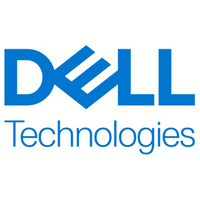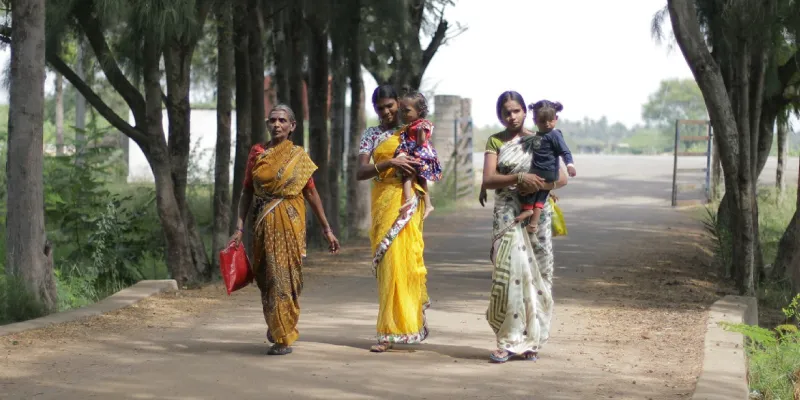
Dell Technologies
View Brand PublisherA commitment for over a decade: Why Dell believes CSR is not just the ‘good thing’ but the ‘right thing’ to do
The excited chatter at Jhamtse Gatsal Children’s Community in a remote village in Arunachal Pradesh’s Tawang indicated that a long-time dream had come true for the 90 children at the community home. They now had access to computers, printers and internet, like millions across India. And, making their dream a reality was National Geographic explorer Mike Libecki and a team of Dell employees. During their stay at the community centre in July 2018, the team set up an internet connection, installed laptops and printers and trained the teachers and students on how to use computers.
This is just one example of how Dell has been putting its technology and expertise to work to benefit the people and planet. For long, the company has advocated that being a business citizen it must go beyond profit-making objectives and undertake socially, environmentally and economically useful programs to bring in real change.

Dell CSR’s India story
In 2009, Dell partnered with Sambhav Foundation to assist the non-profit in its skilling efforts to bring about a socio-economic change in the lives of the marginalised in India. A decade after it first began its CSR journey in India, today Dell has created impact across a number of sectors – from education and healthcare, to the environment.
It has put its technology funding to work in the area of Children’s Cancer Care, especially Neuroblastoma, the deadliest and most resistant form of childhood cancer. It has designed a digital solution, Digital LifeCare, that is helping millions of healthcare workers and doctors to screen and manage non-communicable diseases on a nation-wide scale. It has empowered young children through STEM education, ICT skills, improved teaching pedagogy through technology and demonstrated thought leadership through innovation centers, workshops and think tank partnerships with the Government. In short, Dell has put into action its commitment to address societal challenges, by going beyond funding, and applying technology, expertise and volunteerism to solve these issues.
Towards a more promising tomorrow
Dell introduced its 2020 Progress Made Real Plan with ambitious sustainability and social goals in 2013. The aspirations and goals for 2020 focus on two inter-related aspects. The first was to inspire more Dell team members to use their passion and unique professional skills to serve their communities. The other was to connect the youth of today with a more promising tomorrow. A large part of their efforts have focused on closing the learning gap and giving young people the power to discover better possibilities, since Dell believes that access to education and technology is not a luxury, but a necessity.
Its signature programme, Prerna, in collaboration with Sikshana Foundation, a Karnataka-based NGO, employs a dual approach to building basic ICT (Information Communication Technology) skills and 21st-century skills in students, while also empowering teachers to leverage technology in the classroom. The programme, which was started with a handful of schools, went on to be implemented in all 43,897 primary schools across Karnataka, impacting 2,296,139 students.
In over 3,000 schools and learning centres across India, Dell has integrated ICT into the school curriculum, helped out-of-school children gain sufficient knowledge and skills to merge with the formal educational system, trained teachers to use technology and provided a self-learning environment for 600,000 children and youth. In most of these efforts, Dell’s contribution has not been limited to just donating cutting-edge technology. In fact, a local Dell Ambassador works with the Youth Learning recipient organisation to help support the deployment and upkeep of technology, as well as organising local Dell team members who wish to volunteer in the initiative.
The impact of Dell’s CSR initiatives focused on Youth Learning has been tremendous. 5.3 million students and 10,000 teachers and school leaders across 2,000 schools have been trained in ICT and compelling educational programmes that advance next generation learning capabilities. Partnering with innovative non-profit organisations, Dell has given underserved youth access to state-of-the-art technology, helping them uncover new possibilities. It has complemented these technology-focused programmes with WASH initiatives to increase the percentage of girls who stay in school.
Today, that focus from youth learning is expanding to provide the future workforce with relevant skills for the gig economy. An excellent example is Dell’s recent initiative to adopt 86 ATL schools and establish three Community Makerspaces in partnership with NITI Aayog’s Atal Tinkering Labs (ATLs) initiative. The initiative will give underserved youth access to emerging technologies and resources and will play a key role in equipping them with skillsets required in the future and the opportunity to innovate. The Community Makerspaces, in particular, will encourage the community to come together, work with each other and leverage their shared knowledge and creativity to develop solutions for community issues. Dell also launched the “Nayee Dishayen, Naye Nirman” programme, ‘Student Entrepreneurship Program’ along with NITI Aayog to encourage the spirit of innovation in children. Six ATL young innovator teams were enrolled into a 10 month-long ‘ATL Student Entrepreneurship Program’ to take their innovations from prototypes to marketable products.
These and many other initiatives that Dell is deploying in India today align with its signature initiative to provide relevant 2030 skills for the gig economy.
Interested in exploring a career with Dell technologies? Click here.
A positive impact on the planet
As much as Dell consciously strives to make an impact on people, it equally strives to make a positive impact on the planet. For Dell, environmental responsibility has not been just about creating eco-friendly products or individual initiatives but about incorporating sustainability into every aspect of its being as a corporation. This is reflected in its approach of considering the environment at every stage of the technology lifecycle, from design to the ‘end of life’, and then measuring the impact to make informed future efforts. These initiatives include reducing greenhouse gas emissions from their facilities and logistics operations, reusing or reducing their fresh water in water-stressed regions, ensuring that 90 percent of waste generated at Dell-operated buildings is diverted from landfills, demonstrating 100 percent transparency in key issues within the supply chain, and working with suppliers to mitigate risks in those areas.
These efforts have been complemented with many other initiatives, some of which have been specific to India, such the free laptop battery recycling programme that aimed to increase the awareness of e-waste disposal among consumers and the Dell Diesel Ink Project. Last year, Dell collaborated with Chakr Innovation, an India-based tech startup. The startup’s innovative technology captures soot from diesel generators and turns it into carbon black, which is then used to make ink. Dell has now begun using that ink on 1.5 million Dell boxes that ship out of India each year. It is estimated that the process will help clean the equivalent amount of air breathed by about 110,000 people in one year.
Driven by passion
Putting into Action Dell’s CSR programmes and driving their success are its passionate volunteers. For instance, Dell recently collaborated with Mithra Jyoti, a non-profit for the visually impaired to help visually impaired students get easy access to regional language textbooks. A team of Dell volunteers leveraged Dell technologies to develop an AI and ML-based solution which can convert Indian regional language books into Braille/MP3/DAISY/ePUB formats faster and with greater accuracy. This technology aims to reduce the turnaround time of text book conversion from 14 days to less than two days.
This is just one example of how the Dell volunteers have been at the core of the community service initiatives. These include tree plantations, making seed bombs, spot-fixing public places, supporting animal rescue centres, lake rejuvenation drives, disaster relief, stationary and food donation drives, teaching and mentoring government school students and blood donation drives which take place pan-India, the strong workforce at Dell has been a driving force for Dell’s successful CSR initiatives. In addition, the company actively encourages its employees to make an impact in the communities they live and work in and facilitates opportunities for team members to volunteer with any charity or cause that they feel passionate about.
Demonstrating how to scale sustainability
In just six years, after Dell released its ambitious 2020 Progress Made Real Plan, Dell has completed or exceeded over 75 percent of the goals ahead of schedule and is on track to achieve the remaining number.
These achievements demonstrate how the company has scaled sustainability, empowered people and established technology as an accelerator for positive customer and societal outcomes for years to come. The accomplishments include reusing 100 million pounds of recycled content, plastic and other sustainable materials in Dell Technologies’ new products, developing and maintaining sustainability initiatives in 100 percent of Dell Technologies-operated buildings, delivering 5 million service hours to communities globally & 145,000 in India and much more.
The company believes that the 2020 Progress Made Real Plan has been a fantastic foundation, but recognises that there is more to do. As Dell looks to 2030 Progress Made Real goals, it remains focused on understanding emerging societal challenges and how to innovate for impact — so that today’s challenges don’t define the next generation. Dell is committed to using its reach, technology and people to create a positive, lasting impact on humankind and the planet.
Read more about how Dell Technologies is shaping the future here.







